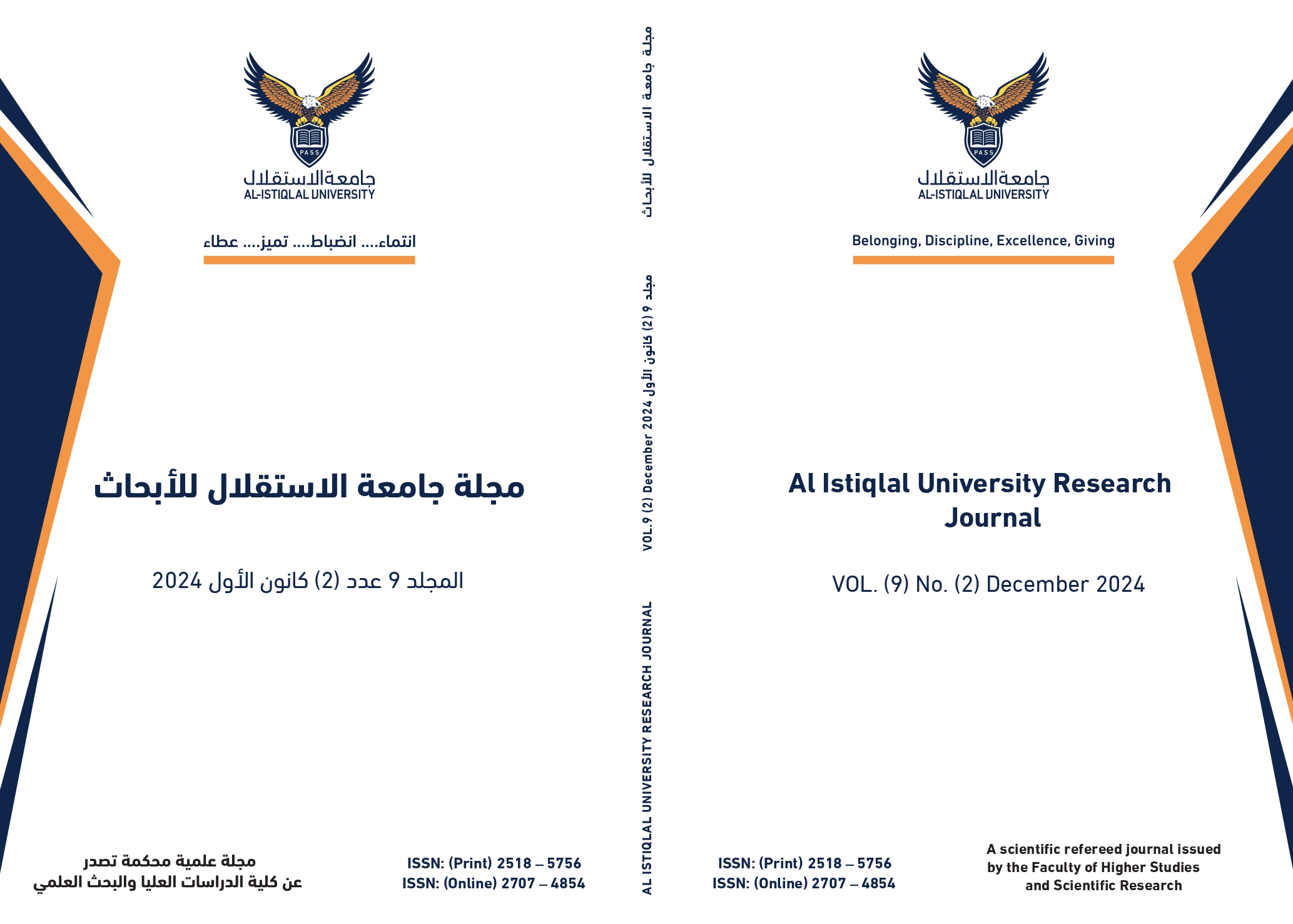Abstract
This study aimed to analyze the legal and regulatory framework of Palestinian universities and its role in promoting effective governance practices. To achieve its objectives, the study employed a qualitative methodology involving the analysis of university systems and legal and regulatory documents. The findings revealed that the legal and regulatory framework plays a crucial role in strengthening university governance by defining authorities, responsibilities, ensuring accountability, and promoting transparency. While the study identified some strengths in the existing laws and regulations, such as directing authority and setting goals and guidelines, it also highlighted weaknesses related to diversity in representation, policy formulation, fragmented application of laws and instructions, and incomplete coverage of all university functions. Additionally, the study found that the Palestinian Higher Education Law lacks adequate provisions for regulating the different types of universities (public, private, governmental). The current law outlines the mechanism for forming governing boards (boards of trustees) in public universities only, excluding private and general universities. Finally, the study concluded that universities can make significant contributions to strengthening the legal and regulatory framework, thereby enhancing governance standards within the university context.

This work is licensed under a Creative Commons Attribution-ShareAlike 4.0 International License.
Copyright (c) 2025 Al Istiqlal University Research Journal




